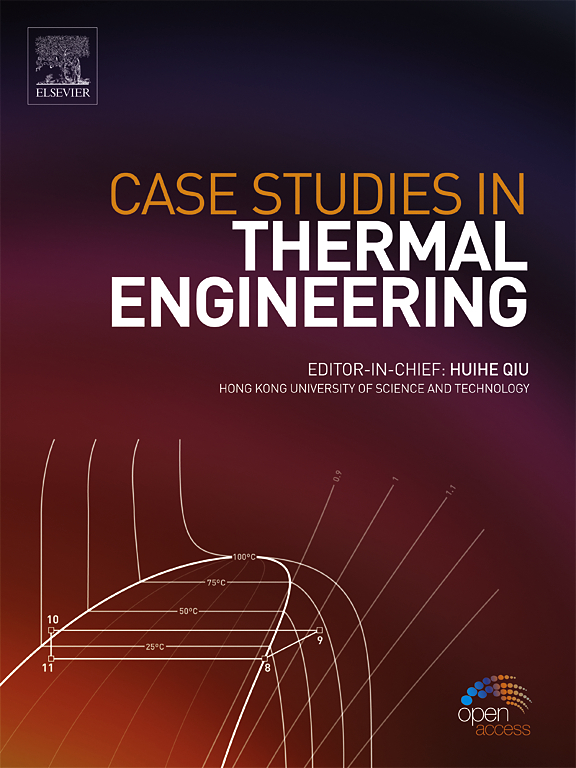Preliminary design and key components validation of modular recuperated micro gas turbine for small unmanned systems
IF 6.4
2区 工程技术
Q1 THERMODYNAMICS
引用次数: 0
Abstract
This paper presents an overview of the preliminary design of a modular recuperated micro gas turbine for small unmanned systems, demonstrating the technical feasibility of this integrated power solution. Analysis identifies a pressure ratio near 5.0 as optimal and feasible for the high-power scheme, balancing flow-specific power and thermal efficiency. Electrical power outputs between 15 kW and 150 kW are achievable, with specific fuel consumption (SFC) lower than 0.225 kg/(kW∙h) for outputs exceeding 50 kW. At 150 kW point, thermal efficiency for electricity reaches 37.3 % with an SFC of 0.2294 kg/(kW∙h). The low-power scheme achieves 0.78 isentropic efficiency at a pressure ratio of 2.85, with turbine efficiency higher than 0.825. The high-power scheme's compressor achieves an efficiency of 0.798 with a pressure ratio of 5.08, and the turbine efficiency reaches 0.897. Experimental testing of the single-can combustor shows a total pressure loss of 3.29 % and combustion efficiency of 97.13 % at design point. The cross-corrugated primary surface recuperator achieves an effectiveness of 0.9195 and total pressure loss of 3.69 % at a heat-weight ratio of 7.76 kW/kg.
小型无人系统模块化回热式微燃气轮机初步设计及关键部件验证
本文概述了用于小型无人系统的模块化回热微型燃气轮机的初步设计,展示了该集成电源解决方案的技术可行性。分析表明,在平衡流量比功率和热效率的情况下,接近5.0的压力比是大功率方案的最佳和可行的。可实现15千瓦至150千瓦的电力输出,输出超过50千瓦的特定燃料消耗(SFC)低于0.225千克/(kW∙h)。在150kw时,电的热效率达到37.3%,SFC为0.2294 kg/(kW∙h)。小功率方案在压比为2.85时等熵效率达到0.78,涡轮效率高于0.825。大功率方案压气机的效率为0.798,压比为5.08,涡轮效率为0.897。单筒燃烧室实验测试结果表明,设计点总压损失为3.29%,燃烧效率为97.13%。在热重比为7.76 kW/kg时,交叉波纹初级表面回热器的效率为0.9195,总压损失为3.69%。
本文章由计算机程序翻译,如有差异,请以英文原文为准。
求助全文
约1分钟内获得全文
求助全文
来源期刊

Case Studies in Thermal Engineering
Chemical Engineering-Fluid Flow and Transfer Processes
CiteScore
8.60
自引率
11.80%
发文量
812
审稿时长
76 days
期刊介绍:
Case Studies in Thermal Engineering provides a forum for the rapid publication of short, structured Case Studies in Thermal Engineering and related Short Communications. It provides an essential compendium of case studies for researchers and practitioners in the field of thermal engineering and others who are interested in aspects of thermal engineering cases that could affect other engineering processes. The journal not only publishes new and novel case studies, but also provides a forum for the publication of high quality descriptions of classic thermal engineering problems. The scope of the journal includes case studies of thermal engineering problems in components, devices and systems using existing experimental and numerical techniques in the areas of mechanical, aerospace, chemical, medical, thermal management for electronics, heat exchangers, regeneration, solar thermal energy, thermal storage, building energy conservation, and power generation. Case studies of thermal problems in other areas will also be considered.
 求助内容:
求助内容: 应助结果提醒方式:
应助结果提醒方式:


